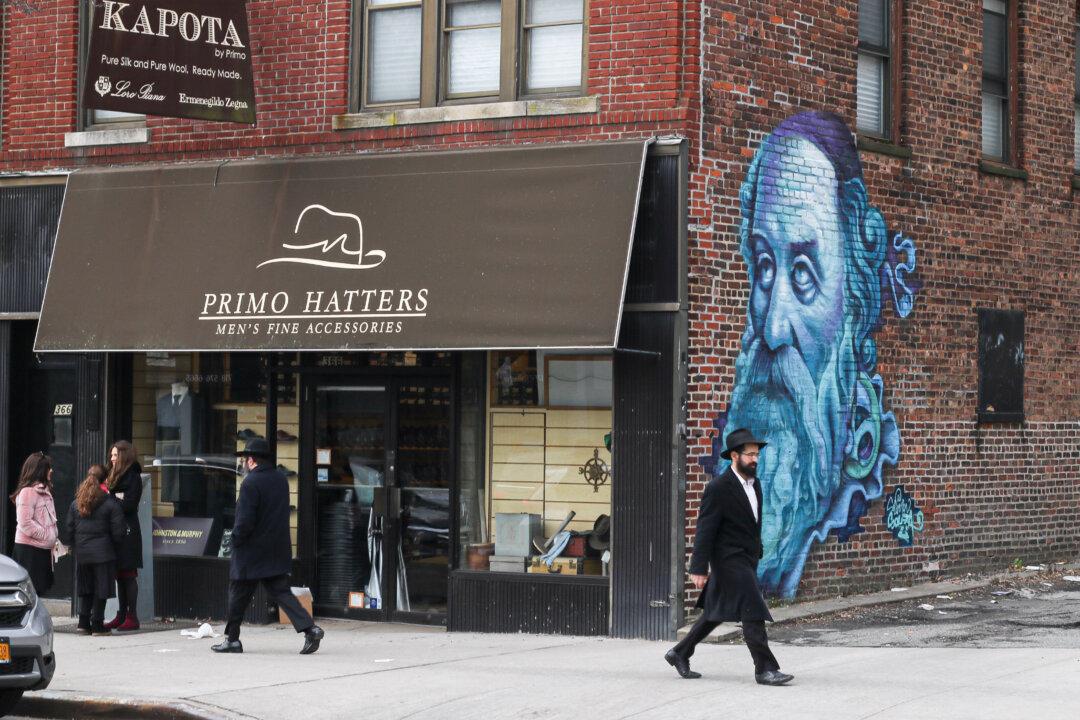CROWN HEIGHTS, N.Y.—The mood in Crown Heights was a surreal mix of fear, angst, and indifference. Police officers and emergency vehicles lined the main street in the Brooklyn, New York, neighborhood as Jewish school buses carrying children drove in and out.
Scores of Hasidic Jews walked past each other along the street, barely glancing up at the ramped-up security around them, which is now a recurring presence in their life. Scattered groups spoke among themselves, some in hushed, muted tones.





